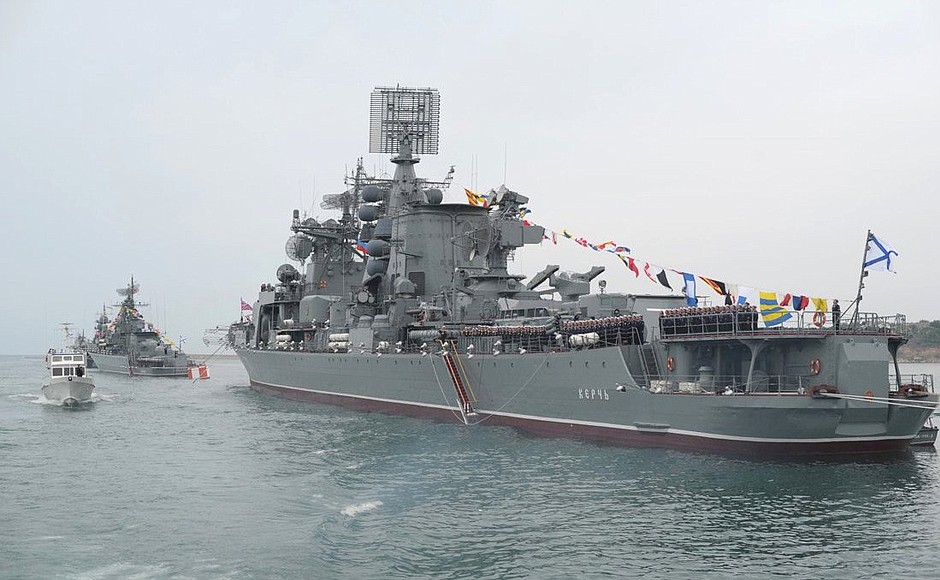The shift of dominance in the Black Sea
Despite centuries of political and military conflicts and other power dynamics around the Black Sea, there has never been a period in history when a common conception of the Black Sea region existed – not even among the littoral states. Accordingly, the Black Sea region has gradually evolved into a unit of analysis, a sort of framework under which certain power dynamics are analysed by different scholars and policy-makers.
August 26, 2019 -
Sophia Petriashvili
-
Hot TopicsIssue 5 2019Magazine

A Russian naval parade of Black Sea Fleet ships. Russian’s annexation of Crimea is a clear signal that the Black Sea is gradually becoming a Russian lake. Photo: Website of the President of Russia (CC) http://en.kremlin.ru

































